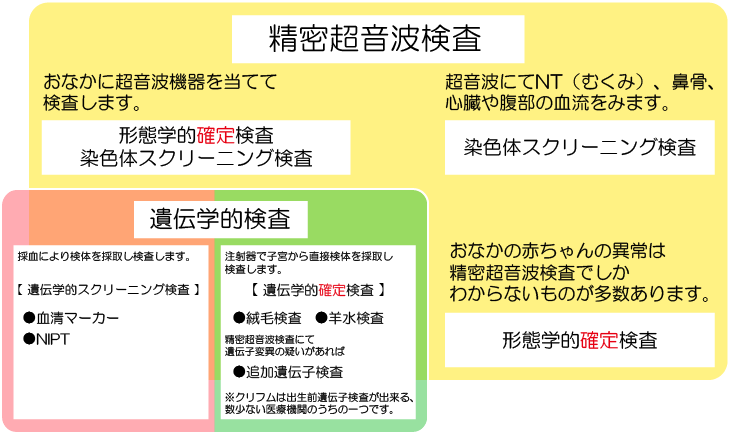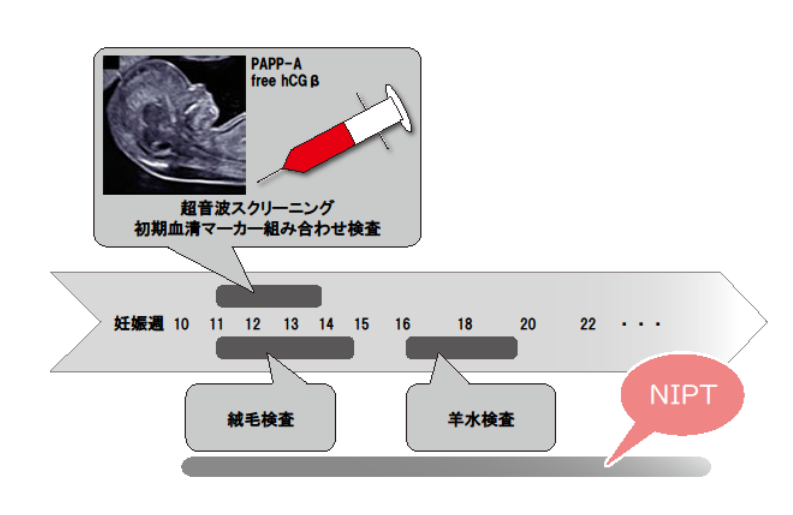Prenatal tests for chromosomal abnormalities
Prenatal tests for chromosomal abnormalities
- TOP
- Fetal Medicine
- Prenatal tests for chromosomal abnormalities
Prenatal tests for chromosomal abnormalities
There are two ways to detect chromosomal abnormalities in a fetus: screening tests and definitive tests (diagnostic tests).
Screening tests are used to determine the likelihood of a chromosomal abnormality, and include precision ultrasound (genetic ultrasound screening), OSCAR test, and NIPT. (Figure 1)

The screening method can check for the presence of specific chromosome number abnormalities, but the accuracy varies depending on the testing method.
However, even if the screening method is positive, the presence or absence of abnormalities cannot be diagnosed until a definitive test is done. This is also true for NIPT, which is said to be one of the most accurate screening methods. One in ten pregnant women in their 40s who test positive for NIPT may not actually have Down syndrome, and several pregnant women in their 20s who test positive for NIPT are said to be normal.
The definitive test for chromosomal abnormality is to examine the fetal cells in the chorionic villi (placenta) and amniotic fluid to see if there is indeed a chromosomal abnormality. There are two test methods: Chorionic villus test and amniocentesis test.
In addition to Down’s syndrome (21 trisomy), 18 trisomy, and 13 trisomy, other structural abnormalities such as chromosome number abnormalities and partial chromosome abnormalities are also detected in the definitive test.
Screening tests at CRIFM
The detailed ultrasonography performed in the early fetal dock of CRIFM is a screening test for genetic diagnosis and a definitive test for morphological diagnosis.(Figure 2)
Recently, a large number of congenital malformations have been diagnosed in the early stages.
Since the fetus is actually observed and confirmed, the test provides more reliable information than a blood test for pregnant women.

Timing of screening and diagnosis
At CRIFM, ultrasound screening is done in early pregnancy (11-13 weeks) and OSCAR test is done if desired.(Figure 3)

If the result is negative, the fetus is considered to be healthy at a fairly high rate, but if the result is positive, you will be asked to consider a definitive test.
Diagnostic tests
The CVS is done between 11 and 14 (15) weeks, and the amniocentesis test is done between 16 and 20 weeks to check the chromosomes clearly.
CRIFM’s standard diagnostic tests include not only the traditional G-band chromosome karyotyping, but also the QF-PCR test, which provides definitive results for Down’s syndrome, 18-trisomy, and 13-trisomy in one day, and the digital chromosome test (D-karyo), which detects microchromosomal abnormalities in all chromosomes.
